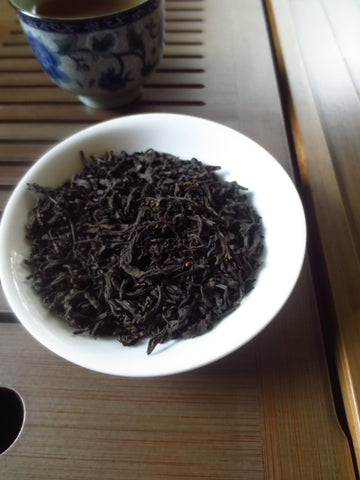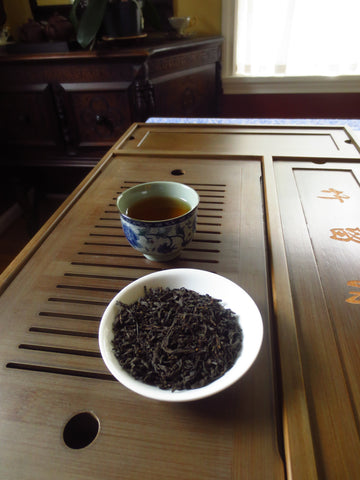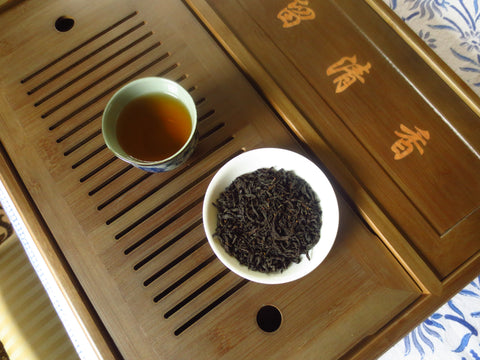
The song of Lapsang Souchong
As a former journalist I’ve been obsessed lately with the unfolding government shutdown drama. I refresh my NYT app nearly every half hour for updates on the issue as if tracking score as a sports fan would.
But this I know is not sports - “no damned game” as the Speaker says - and many lives are hanging in the balance because of the shutdown. In less than a couple of weeks, the whole nation’s fate will be on the line if there is no agreement on the debt ceiling. The heart aches and the head hurts.
“Looked through the papers.
Makes you want to cry.
Nobody cares if the people,
Live or die.”~ Leonard Cohen, In My Secret Life
Therefore for strength I turned this morning to the strongest tea in our collection Lapsang Souchong. Strongest in terms of its aroma and flavor. It is not often that I drink this tea. It is a bit too overbearing for my everyday palate.
The smell of the tea wafts through the whole room as I open the packet. The smell of burnt wood and camphor remind me of my grandparent’s kitchen. They lived in a small village near Darjeeling called Chimney (named after a decrepit British bungalow whose only thing standing was the chimney). All the cooking was done on a wood-stove which enhanced everything with a smoky flavor that I loved.
A wood stove in a village called Chimney - perfect images for Lapsang, perhaps the only smoked tea around. In the process of manufacturing, the tea is dried over smoking pinewood which gives it a very smoky character. It is one of the oldest forms of tea still made. As most great discoveries this happened perchance when a company of travelling soldiers trampled and “ruined” tea that was being withered in a Tongu village in the Wuyi region of China.
The villagers tried to save the situation by drying the tea over open wood fire. The next day they sold the tea off cheaply at the market. To the surprise of the tea makers next year, there was a great demand for this smoked tea and the market was willing to pay more than they had ever for the tea from Tongu village! Thus began the tradition of Lapsang Souchong.
You can watch this well made documentary on a China TV archives about Lapsang Souchong and black tea.
I used a teaspoon of tea for a 8 oz cup and steeped it for 4 minutes. Considering that these are large leaves one would normally have used a tablespoon but I decided to take a conservative approach. The resulting brew although still full of the smoky-woodsy aroma bearing within it a surprisingly smooth and sweet flavor with a strong menthol-like finish. I don’t know where the latter comes from. I felt the coolness in my stomach too!
I was enjoying my cup and half way through it I decided to add a touch of milk and sugar to see how that would go. Funny, the tea tasted exactly like it does in Tibetan monasteries where they make butter tea with puerh. I’ve spent many hours in monasteries throughout my life and memories of them bring peace to my heart.
Here in this tea is a lesson for the government. Nothing is really ruined. Sometimes great things come out of ruins, as long as you don’t give up. At a personal level, Lapsang tells me not to be deterred by appearances. It is not refined and elegant to look at but it hides a lot of beauty, provided you go beyond that first sip.





Comments
Leave a comment